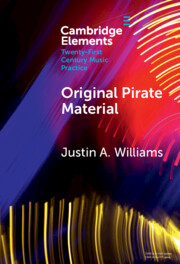Element contents
Original Pirate Material
Published online by Cambridge University Press: 22 November 2024
Summary
- Type
- Element
- Information
- Online ISBN: 9781009162616Publisher: Cambridge University PressPrint publication: 19 December 2024
References
- 5
- Cited by

